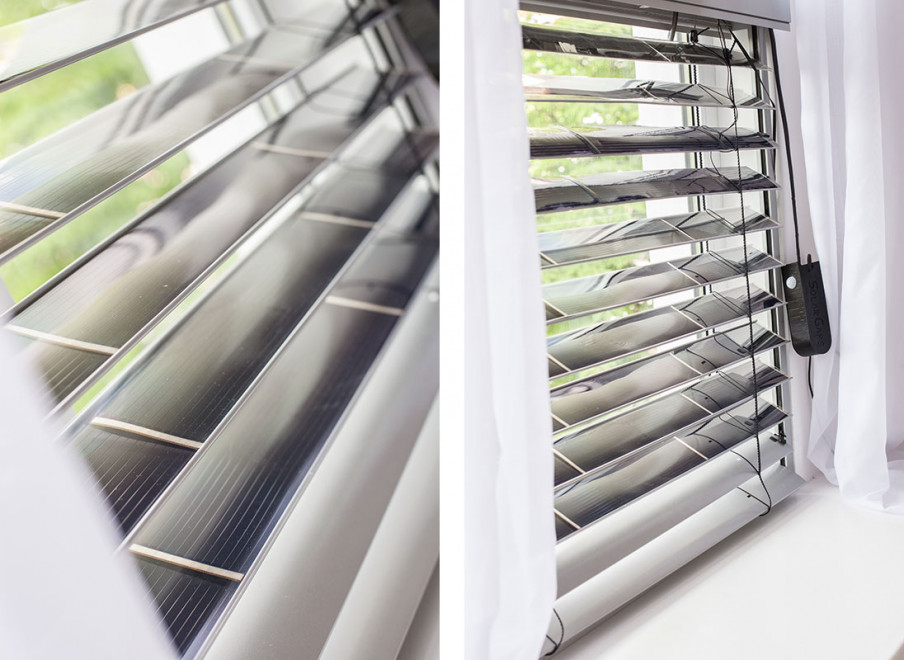On June 10 venture company "Effective Investments" acquired a 20 percent stake in the startup for $200,000. The agreement means that the young company is already valued at $1 million.
Enter Ukrainian startup SolarGaps, which has created a device that combines solar panels with venetian blinds to allow those who live in apartments to generate their own electricity.
“It’s not simple to install solar panels on roofs in big cities,” founder Evgeny Eric, 39, told. “Our solution helps people produce green energy more easily, cheaply and more accessibly.”
Once installed on a window, the smart blinds with built-in solar panels can generate over 100 kilowatt of energy a month - the average amount of energy consumed monthly by one Ukrainian citizen, Eric said.
Any energy surplus can either be stored in batteries or be sold to the electricity company as green energy – for a higher price – although to do this a two-way electricity meter has to be installed by the local electricity provider.
To absorb as much solar radiation as possible, the panels, which are equipped with a light sensor, follow the light source, automatically changing angle according to the sun’s position. So that a room is bright enough during the day, the blinds automatically open when a person enters the room where they are installed. They also can be controlled via a smartphone application that currently connects to the device via Bluetooth.
The latest app version will link to the device via the internet, using Android and iOS smartphones.
The first prototype was created six months ago and installed in Eric’s apartment.
“You just plug the blinds into a socket and they compensate for a part of your electricity consumption, that’s it,” Eric said. “We worked out this solution for ourselves, and now we’re offering it to others.”
Currently, the company consists of two people, founder Eric, and engineer and programmer Denys Krutko, 30.
The solar blinds, which have an operating life of 25 years, cost $200 per square meter of window and an additional $100 for an inverter that converts the direct current output of the device into alternating current, which can then be used to power the home. An additional $50 is charged for installation, if required.
According to inventors, the average homeowner in Ukraine will recover the cost of the blinds in four to five years. It will take the citizens of other countries less time, as electricity prices there are higher, Eric said.
In the future, SolarGaps wants to increase the power output of the blinds by using more efficient and reliable solar modules.
SolarGaps has already taken 150 pre-orders so far from various parts of the world, including Spain, Germany and even Fiji. The startup is planning to launch a Kickstarter campaign in three months.




